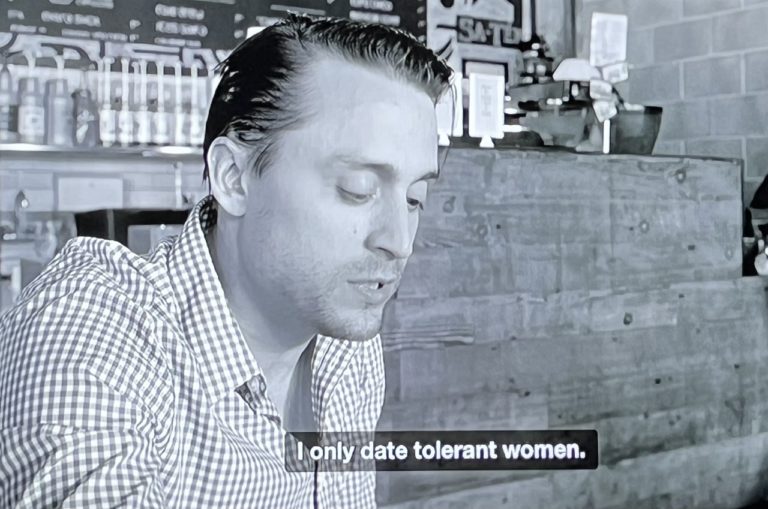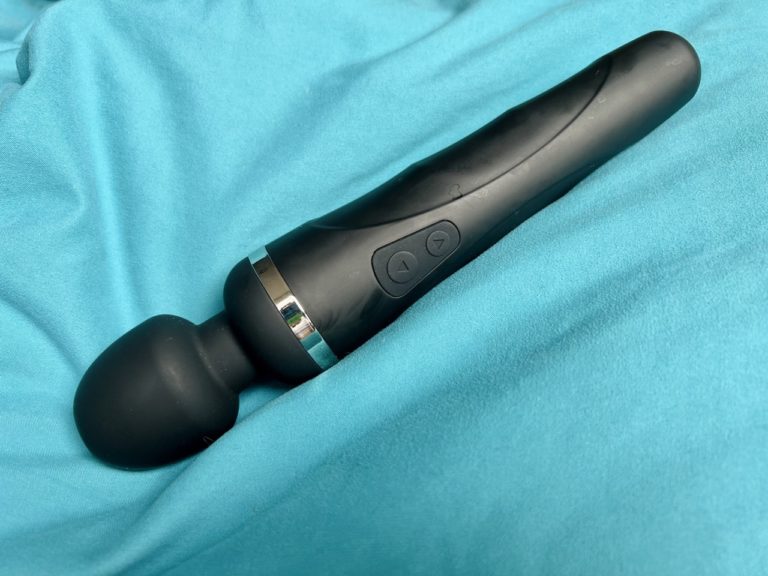
Every single day on the /r/sex subreddit, people post about their porno woes. Sometimes these relate to their own porn tastes or habits, but often they relate instead to a partner’s viewership of porn.
A common manifestation of this might be something like:
A while ago, I walked in on my partner masturbating to porn. I got really upset, and told them I have a personal boundary that my partners aren’t allowed to watch porn because I find it so upsetting. Then, later, I snooped in their phone and found out they’re still watching porn, even after I told them to stop! Clearly they’re a porn addict who doesn’t love me or respect me. How do I get them to stop?
Even setting aside some of the more glaring issues (like, for the love of all things holy and good, do NOT look through someone’s phone without their permission!), I have a few issues with this type of thinking, and I want to break those down today.
1. Your partner is allowed to masturbate.
Period. Full stop.
If you’d prefer a relationship style where your partner is not allowed to masturbate – and, crucially, if that is also what your partner would prefer – then I’d suggest looking into the consensual chastity community, and carefully negotiating the limits of your dynamic, including safewords. Exploring sexual fantasies together can be super fun!
However, outside the realm of consensually-negotiated orgasm-control dynamics, your partner is allowed to masturbate, regardless of how you may feel about it. They have the right to bodily autonomy, as do you, and relationship status has no effect on that inalienable right. If this makes you uncomfortable, point #4 on this list may be especially useful to you.
2. Porn is part of masturbation for many people, and there is nothing inherently wrong with that.
Porn boosts arousal, helps engage our brains so we can focus more on pleasure (which can be extra useful when life/the world is stressful), expands our erotic imaginations, and is just simply fun to watch. People who jerk off to porn are no different from people who jerk off to erotica, fantasies, memories, photos of partners/hot celebrities/etc., steamy TV shows like Bridgerton, spicy romance novels, or any other arousal-boosting mental stimulation of any kind. And there are porn categories that stretch far beyond how porn is often depicted and thought about: it’s not all horrific, chauvinistic or unrealistic (besides which, it’s totally possible for a kinky porn scene to embody some or all of these qualities and to have been made with the full, informed consent of everyone involved – Tristan Taormino’s Rough Sex series is a good example).
Plus, porn is a really wonderful thing for a lot of people, both on the viewing side of things and on the production side of things. It’s how many kinky people first mentally explore their burgeoning desires; it’s how some trans and non-binary people first see themselves represented as sexy and desirable; it’s a source of income and a creative outlet for many marginalized creators.
As for “porn addiction,” it’s a moralizing, pathologizing term that’s been applied to a wide range of behaviors, ranging from totally normal levels of porn usage to more extreme/compulsive usage. In any case, it’s not really a useful label and also not a true addiction in the clinical sense. I’m not an expert on this side of things, but would recommend you check out Kris Taylor’s work on this subject if you’re curious about it. There are definitely plenty of people who use porn to a compulsive or unhealthy extent – in which case it might be seriously affecting their employment, relationships, mental health, and so on – but I think most accusations of “porn addiction” (even self-inflicted accusations) are largely based on puritanical moralization, not reality.
3. Boundaries are rules you set for yourself, not for other people.
You’re the only one whose behavior you can control, so you’re the only one you get to set boundaries for.
Here’s an example of a boundary:
I find it triggering when I find out that a partner of mine has watched porn, so until I’m able to work through that issue, I choose not to date people who watch porn because I find it too destabilizing at the moment. When I find out that someone I am dating watches porn, I respectfully end the relationship.
Here’s an example of something that is not a valid boundary, because it focuses on controlling someone else’s behavior instead of your own:
I find it triggering when I find out that a partner of mine has watched porn, so anyone who is partnered with me is not allowed to watch porn. When I find out my partner has watched porn, I won’t necessarily end the relationship, but I will get angry or upset with them for having violated this rule I set, even if they didn’t agree to it or didn’t even know about it.
Own your boundaries. Understand that boundaries are about you and your actions.
4. You will be happier when you work through this shit
This is really the most important point I always try to convey to people who are uncomfortable with their partners’ porn usage. While it’s never made me uncomfortable for my partners to watch porn, there have been some other, totally normal-and-fine things that have sometimes triggered jealousy, anxiety, or insecurity in me when partners do them – and the healing work I’ve done in therapy, in order to work through these issues, has revolutionized not just my romantic relationships, but my entire life. I am a much, much happier and more stable person for it, and my relationships have improved as a result.
I’m definitely not saying that therapy is easy, or that everyone can access it. I really wish everyone could, or everyone who wanted to, anyway. There are methods of self-reflection that may be useful even if therapy is inaccessible for you, like journaling about the roots of your anxieties or even using therapeutic techniques from Internal Family Systems (Jay Earley has a book called Self-Therapy about this).
I’m also not saying that therapy is the solution to all ills in a relationship. If your partner is abusing you, mistreating you, ignoring you, deprioritizing you, etc., you’re allowed to be upset about that, you’re allowed to communicate about it, and you’re always allowed to end the relationship. When I have trouble discerning between a thing I actually should be mad about, and a thing that’s actually totally fine but that I’m mad about because of my own issues, sometimes I’ll ask a friend or another outside observer what they think.
As ever, these are all just my opinions; you can take ’em or leave ’em, ’cause it’s your life. But when I see someone fretting over their partner’s totally normal porn-viewing habits, I see someone who has the potential to be happier someday, if they view that anxiety as a thread to pull, a road to follow to its fraught source. It’s not easy, it’s not fun, but it is freeing as hell. And it means you can watch porn together, which is hot. Seems like a win-win to me.
This post contains sponsored links. As always, all writing and opinions are my own.


 I’m a psychology nerd. I minored in psych at university, and have seen various therapists over the course of my life to help pick apart my tangled psyche. After all this exploration, two of my favorite psychological frameworks are dialectical behavior therapy and cognitive-behavioral therapy.
I’m a psychology nerd. I minored in psych at university, and have seen various therapists over the course of my life to help pick apart my tangled psyche. After all this exploration, two of my favorite psychological frameworks are dialectical behavior therapy and cognitive-behavioral therapy.